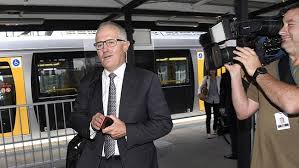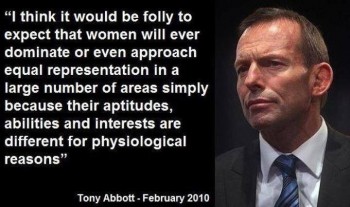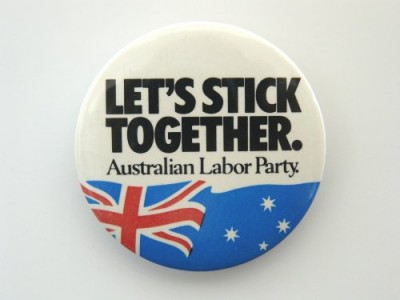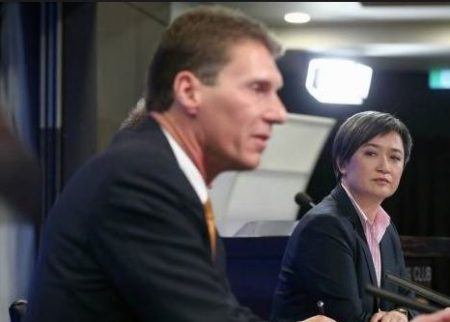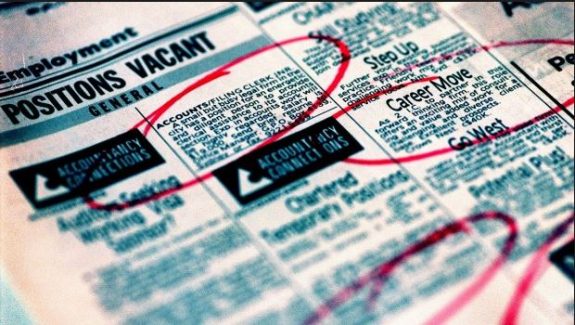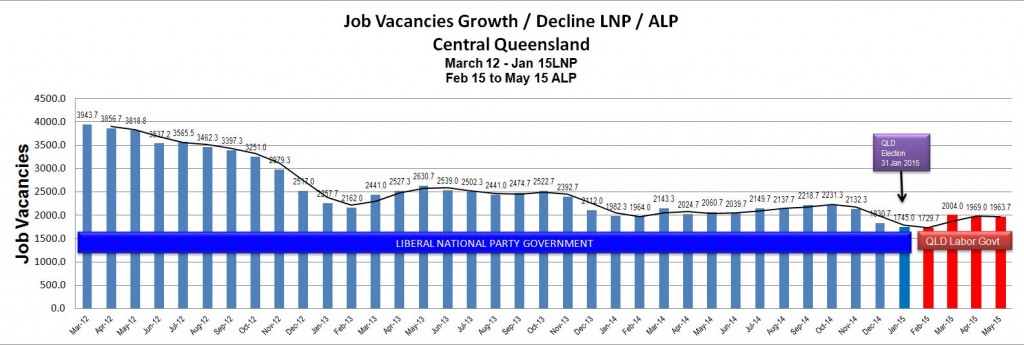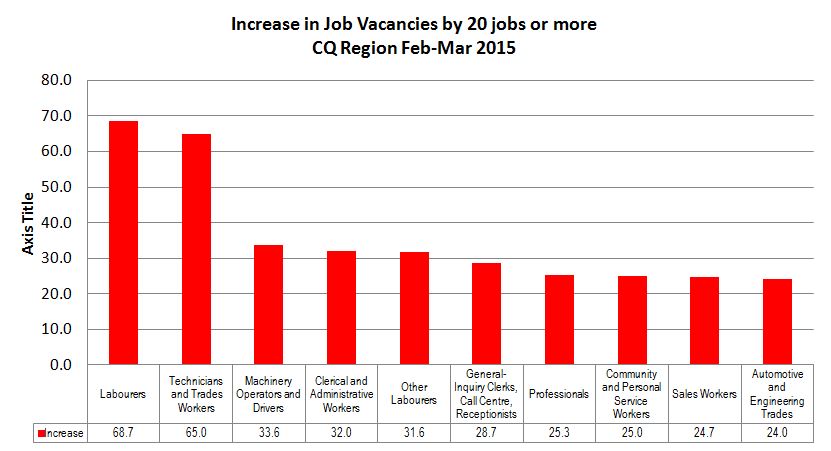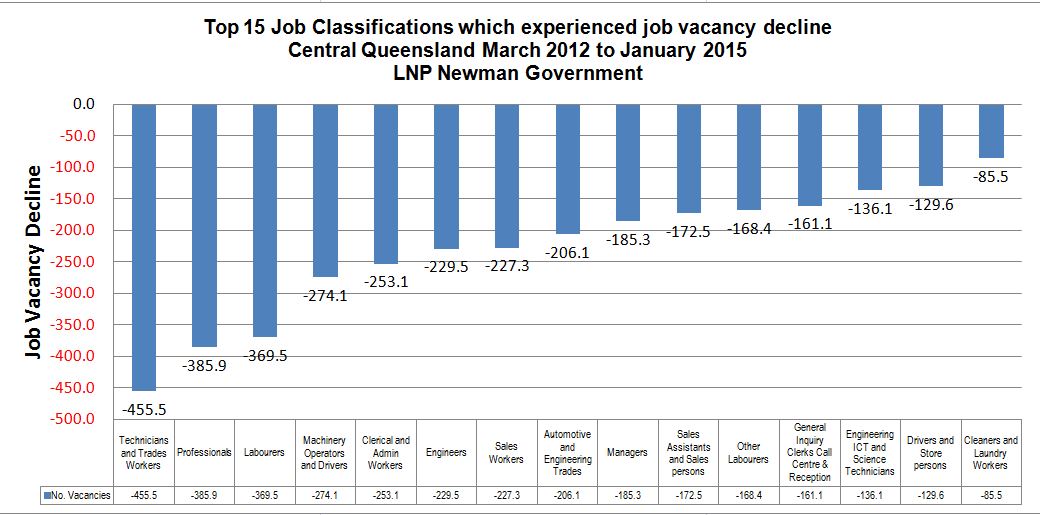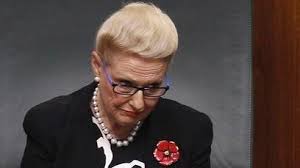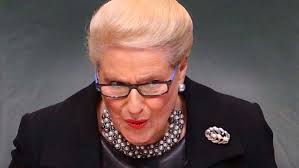Who was really behind the dismissal of the Whitlam Government? As we approach the 40th anniversary of the dismissal, Dr George Venturini* critically examines the giddy rise of Gough Whitlam, his reforms, his cold relationship with the Nixon Administration, the Khemlani loan scandal, the dismissal of the Whitlam Government on 11th November, 1975 and the questions that have lingered since. This is a four part series which will conclude on the anniversary of the dismissal.
The coming of a titan
On 13 November 1972, at the Blacktown Civic Centre, Sydney, Edward Gough Whitlam delivered the Policy Speech for the Australian Labor Party.
He addressed himself, as wartime Prime Minister John Curtin had done in 1943, to “Men and Women of Australia”.
For him it was like saying “as we were saying yesterday”. His speech was a celebration of hope and commitment. He went on:
“The decision we will make for our country on 2 December is a choice between the past and the future, between the habits and fears of the past, and the demands and opportunities of the future. There are moments in history when the whole fate and future of nations can be decided by a single decision. For Australia, this is such a time. It’s time for a new team, a new program, a new drive for equality of opportunities: it’s time to create new opportunities for Australians, time for a new vision of what we can achieve in this generation for our nation and the region in which we live. It’s time for a new government – a Labor Government”.
Whitlam then proceeded to outline in great detail the points of ‘The Program’ he had worked for years to prepare, refine and perfect. It would deal in the most minute particulars with all areas of government: open government, economic planning, taxation, prices, education, health, social welfare, cities, urban transport, regional development, primary industries, northern development, shipping, foreign investment, the Australian Industry Development Corporation, industrial relations, the quality of life, arts and media, law and order, Aborigines, international affairs and defence, and Anzus – in that order of presentation, but not of priority. No area of human endeavour was to be neglected.
“Our program” he said, “has three great aims. They are:
- to promote quality
- to involve the people of Australia in the decision-making processes of our land
- and to liberate the talents and uplift the horizons of the Australian people.
We want to give a new life and a new meaning in this new nation to the touchstone of modern democracy – to liberty, equality, fraternity”.
After victory on 2 December, certain matters of government required a prompt decision, but such matters could not be attended until a ministry had been nominated and that was not possible before 18 December.
It was then agreed with the Governor-General that a ‘duumvirate’ be established, composed of Mr. Whitlam and his loyal deputy, Mr. Lance Herbert Barnard.
Mr. Whitlam allocated to himself 13 portfolios: Prime Minister, Foreign Affairs. External Territories, Treasurer, Attorney-General, Customs and Excise, Trade and Industry, Education and Science, Shipping and Transport, Civil Aviation, Housing, Works and Environment, Aborigines and the Arts. He allocated to Mr. Barnard 14 portfolios: Defence, Navy, Army, Air, Supply, Postmaster-General, Labour and National Service, Immigration, Social Services, Repatriation, Health, Primary Industry, National development and the Interior.
Together they would make major decisions across almost all areas of government.
The atmosphere of the first days is still captured in the daily record published by The Sydney Morning Herald:
On 5 December 1972, on his first press conference, Prime Minister Whitlam discussed more plans, including the recognition of China, matters concerning employment, the wine tax, national service, land prices, Papua New Guinea independence and promised a more independent Australian stance in international affairs; announced the appointment of Dr. H. C. Coombs as personal advisor; the return of the passport to Mr. Wilfred Burchett, an Australian-born communist journalist; the forthcoming talks with South Australian and Western Australian Premiers on employment problems; and the re-opening before the Arbitration Commission of the case for equal pay, and other matters.
On his part, Mr. Barnard announced an immediate end to national service call-up.
On 6 December it became known that the Australian Ambassador in Paris had opened talks at the Chinese Embassy on Australia’s recognition of China, following the recall of the Australian Ambassador from Taiwan; all seven draft resisters had been set free; and additional bonus was to be offered to national servicemen who choose to complete 18 months term of service.
The Labor Federal Government took the following steps on 7 December, its third day of office: announcing extensive new bonus for permanent members of the forces; initiating moves to scrap the honours list; ordering the N.S.W. Government close down the Rhodesian Information Centre in Sydney and cancelling the Australian passport to the Rhodesian diplomatic representative; removing the sales tax on the contraceptive pill – to be placed on the National Health Scheme list; referring certain matters to the Tariff Board; stopping the granting of further leases on Aboriginal reserves in the Northern Territory; and pre-announcing the restructure of the Conciliation and Arbitration Act by the future Minister for Industrial Relations.
On 8 December the new Labor Government took the following steps: lifted the sales tax on contraceptives; announced that the Sydney airport jet curfew would be strictly enforced; announced that racially selected sporting teams would be excluded from Australia; asked the Afghanistan Government to bring to trial or release an Adelaide journalist who had been gaoled there for two months; announced that Mr. Whitlam would visit New Zealand in January 1973; released the film Portnoy’s complaint uncensored with an R certificate; and announced that the future Treasurer, Mr. Frank Crean, would be made available as fast as possible to implement expansion plans for tertiary education bodies.
On 10 December the new Labor Government announced a contribution of $300,000 for international birth control programs; held talks with the South Australian premier, Mr. Dunstan, on problems facing the State; announced major new grants totalling more than $4 million for the arts in the following year; guaranteed $6,125.000 in grants for Western Australia, and up to $7 million for South Australia, according to the Premiers of those States; requested talks with the Premier of New South Wales and Victoria to discuss plans for a regional growth centre at Albury-Wodonga, and – most importantly – announced the withdrawal of the remaining troops in Vietnam within the following three weeks.
In its eighth day in office, the Labor Government announced the visit to Australia in January by the Duke of Edinburgh; revealed further talks in Paris on the establishment of diplomatic relations with China and receipt of a message from Chinese Prime Minister, Mr. Chou En-lai; announced the appointment of Mr. John Armstrong as Australia’s new High Commissioner in London, set up the Interim Committee of the Australian Schools Commission; granted $2.5 million in rice aid to Indonesia; decided to ratify international conventions on nuclear arms, racial discrimination and labour; foreshadowed moves to reduce the reserves held in health funds; and indicated that Australia would go ahead with its purchase of 24 F111s.
On 13 December the Labor Government announced new contributions to United Nations funds for Southern Africa; established the average export return under the Apple and Pear Stabilisation Plan; announced that the Interim Committee for the Australia Schools Commission would be holding its first meeting in Canberra on the following week; approved grants totaling $21,000 to two voluntary organisations involved in Aboriginal affairs; and announced that all departments would prepare detailed reviews of secret or unpublished reports. The Minister for Labour would have studied the reviews to see if they could be made public.
On 14 December the Labor Government announced plans for the establishment of special schools for Aborigines; ended Australian wheat exports to Rhodesia; amended the pharmacy ordinance to remove the prohibition on the advertising of contraceptives in the Australian Capital Territory; asked the Australian Ambassadors in Washington and the United Nations to return to Australia for consultations; announced the appointment of the next High Commissioner to Tanzania; announced the appointment of the new Deputy High Commissioner to London; appointed Professor Russell Mathews as a member of the Commonwealth Grants Commission for three years; and announced that national services who were AWOL or in gaol for the same were entitled to protection in regard to civil employment and protection of financial commitments.
On 15 December the Labor Government took the first moves to grant Aborigines land rights; gave Tasmania $3 million to relieve unemployment and for sewerage, housing and education; appointed Miss Elizabeth Evatt a presidential member of the Conciliation and Arbitration Commission; and indicated further decentralisation of tertiary education facilities.
Saturday 16 and Sunday 17 December were the last two days of the duumvirate’s Labor Government. Arrangements were made for Australian swimmer Dawn Fraser to fly to Miami soon to attend the dedication ceremony at the U.S. Swimming Hall of Fame; and a new purchase policy for the Federal Government giving Australian-owned firms preference over foreign-owned companies where all other aspects of the tenders were equal.
Caucus assembled on 18 December to elect the full Ministry by ballot. The result was prompt and predictable and the Prime Minister soon announced the formation of a Government of 27 members.
The real drama of the changeover lay in its novelty. Not since December 1949 had the Australians voted to change their national government. None of Whitlam’s colleagues had held ministerial positions, and only three of the new ministers, Beazley for Education, Cameron for Labor, and Daly for Services and Property as well as Leader of the House had been members of Parliament during previous Labor administrations – in the 1940s. Yet some new ministers, such as Barnard for Defence, Navy, Army, Air and Supply – as well as Deputy Prime Minister, Beazley for Education, Connor for Mineral and Energy, Crean as Treasurer, Hayden for Social Security, Jones for Transport and Civil Aviation, Murphy as Attorney-General – also responsible for Customs and Excise and Leader of the Government in the Senate, Uren for Urban and Regional Development, had long been the Opposition spokesmen for the portfolios to which they were eventually appointed.
The Ministry chosen on 18 December set out enthusiastically to carry out the mandate of 2 December, fired, no doubt, by the example of the duumvirate. The Ministers were firmly of the view that they had been given a specific mandate to implement each part of the Program set forth in the policy speech. They regarded the people’s verdict not merely as a permit to preside but as a command to perform.
Prophetically, in a sense, Whitlam placed an epigraph to his record of The Whitlam Government, 1972-1975 (1985). It reads as follows:
“And one has to reflect that there is nothing more difficult to handle nor more doubtful of success nor more dangerous to conduct than to make oneself the leader in introducing a new order of things. For the man who introduces it has for enemies all those who do well out of the old order and has lukewarm supporters in all those who will do well out of the new order.
The lukewarmness arises partly from fear of their adversaries who have the laws on their side and partly from the incredulity of mankind who do not put their trust in changes if they do not see them in actual practice. Thus it arises that whenever those who are enemies have the opportunity to go on the attack they do so forcefully and the others put up a lukewarm defence, so putting themselves and their cause at risk at the same time” (from Niccolò Machiavelli (1469-1527), The Prince, at Chapter Six).
But such was the wisdom of the hindsight.
The arrival of a new party in government after 23 years in opposition, particularly in a country which calls itself democratic, is highly likely to be a memorable event. As already observed, few of the new ministers had much experience of the duties about to confront them, even by observation.
The rapid, giddying movement of the Whitlam Government during the first weeks of December 1972 was one cataclysmic occasion, certainly the most famous of its kind in the history of Australian Government administration.
The new ministry did not arrive unarmed. Indeed, it had a huge array of plans, policies and programs, covering most fields of government and quite a few new ones as well. There were, nevertheless, some major gaps in the assiduous preparation for office.
The ambitions of Whitlam’s Program demanded attention to the means and instruments of implementation. The Program demanded a change of attitude which was a difficult step for many highly placed public servants. The need was the greater given the fears and reservations that several of the new ministers held about the public service.
Whitlam protested that he did not distrust public servants because his father had been one and a particularly impartial one. But it was a politically unworldly view, an idealisation from another time that Whitlam never doubted, but should have.
Whitlam had before himself the image of a federal public servant as the one projected by his father, who after a long and distinguished service became Commonwealth Crown Solicitor and displayed the same probity in the administration of his function. It is thought that Whitlam senior’s involvement in human rights issues was a powerful influence on his son. Certainly young Whitlam grew up in the strong respect for tradition and conventions in public life. He held a literal meaning for the words ‘public’ and ‘service’. Those words demanded loyalty and honesty to the government of the day. This might have influenced his decision not to replace at least four key persons: Sir John Bunting, Secretary of the Department of the Prime Minister and Cabinet from 1959 to 1975; Sir Keith Waller, Secretary of the Department of External (later Foreign) Affairs from 1970 to 1974; Sir Frederick Wheeler, Secretary of the Department of the Treasury from 1971 to 1979; and Sir Arthur Tange, Secretary of the Department of Foreign Affairs from 1954 to 1965 and of the Department of Defence from 1970 to 1979.
These servants were not ‘public’ in the sense understood by Whitlam, but rather administrators of a conservative and reactionary regime such as was the tenure of government between 1949 and 1966 for sure – and progressively decaying between 1966 and 1972. The vision of two of them was particularly limited. For Wheeler the ‘proper, natural’ place to discuss and borrow money was ‘the City’ – later on, albeit reluctantly, ‘Wall Street’. Tange had long decided that the defence of Australia could only be seen as increasingly dependent on the generosity of the new protector, the United States. Tange had a limited view of worldly things; in modern parlance they are grouped under the ambit of ‘Anglosphere’. He was responsible for entering into high confidential, secret even to the Australian Government, ‘understandings’ among the ‘Five Eyes’ powers, the ‘intelligence alliance’ comprising Australia, Canada, New Zealand, the United Kingdom and the United States.
Out of Menzian torpor
“To me it was rather depressing that in December 1949 when one third of the population of the world was marching forward, we chose to stand still … We were still a nation of petty-bourgeois property owners, who thought it was prudent to prefer men with the values and skills of receivers in bankruptcy and believers in efficient government to visionaries and reformers to govern our country. We had the values of the counting house; we were interest rate men; we thought quality of life men should pull their head in” (Manning Clark, A discovery of Australia (1976) at 8).
1949 was the year of the return to power of Robert Gordon Menzies, anointed Sir in 1963.
Unquestionably provided with a brilliant mind and a dominating personality, Menzies was a superb orator and parliamentary debater, who succeeded in making himself indispensable to the people opposing labour as well as Labor, although very few of them felt for him much personal warmth. His deputy prime minister for many years, Arthur Fadden, the leader of the Country Party – really ‘the Agrarian Socialists’, privately referred to him as ‘the Big Bastard’ – with the accent on Big. For conservative, nay anti-Labor, voters he came in the end to possess almost the mana of a tribal god: he was powerful, wise, well-bred, witty and above all, sound. Few Labor supporters denied his tremendous ability, but to them he appeared also as unscrupulous, opportunistic, condescending an insufferably arrogant (Russel Ward, Concise history of Australia (1992) at 265-266).
Others saw Menzies as “the apotheosis of [Australians’] petty-bourgeois aspirations to high respectability. In his cynicism and philistinism, his racialism and attachment to British imperialism, he reflected traits which [Australians] have often sought desperately to submerge” (Allan Ashbolt, An Australian experience (1974) at 38).
In his The Australian ugliness, Robin Boyd attempted to answer the question: “What is an Australian?” The book’s Chapter 3 is appropriately titled ‘Anglophiles and Austericans’. So – he wrote – there is a “pervasive ambivalence of the national character. Here also are vitality, energy, strength, and optimism in one’s own ability, yet indolence, carelessness, the ‘she’ll do, mate’ attitude to the job to be done. Here is insistence on the freedom of the individual, yet resigned acceptance of social restrictions and censorship narrower than in almost any other democratic country in the world. Here is love of justice and devotion to law and order, yet the persistent habit of crowds to stone the umpire and trip the policeman in the course of duty. Here is the preoccupation with material things – note, for example, the hospitals: better for a broken leg than a mental deviation – yet impatience with polish and precision in material things. The Australian is forcefully loquacious, until the moment of expressing an emotion. He is aggressively committed to equality and equal-opportunity for all men, except for black Australians. He has high assurance in anything he does combined with a gnawing lack of confidence in anything he thinks” (The Australian ugliness (1960) at 74 of the 2012 edition).
Four years later, Donald Horne, another Australian, would publish The lucky country – a title which was misunderstood from the start! The book would offer a first-time visitor to Australia characterisations such as this: “ … it is certainly the belief of many Australians that politics is essentially a fraudulent activity engaged in by self-seeking crooks … in private they often excuse their participation in politics by boasting of their cynicism. It is as if it would be unmanly and un-Australian for a politician to confess to a serious interest in public affairs. The public emptiness of Australian politics comes from its lack of intellectual strength … if intellectuals wish to walk down the corridors of power in Australia they must leave their intellectuality at home. As in business, to pretend to some stupidity is safest” (D. Horne, The lucky country (1964) at 192 of the 2005 edition).
So, could one see in Menzies an ‘upstart windbag’, or a ‘cynical royalist’, or an ‘unctuous liar’ – as he was frequently portrayed by opponents and false-friends?
Menzies considered himself as born by accident in Australia; he felt more like an Australian Briton – perhaps just a Briton abroad. He was no democrat. On the contrary, he had admired Mussolini, repeatedly visited Nazi Germany and reported favourably on it. As it was the tone of the time in London and at Buckingham Palace he regarded Hitler as a “bulwark against Communism”. As a creature of the Bank of New South Wales he felt comfortable in the presence of Reichbank head Hjalmar Schacht, Hitler’s financial wizard. He really despised Australia, and would much rather have been the Prime Minister of Britain. Returning from ‘home’ to Australia in 1941 after an unsuccessful intrigue to replace Churchill, he noted in his diary “a sick feeling of repugnance and apprehension” which grew on him as he was nearing and whereby he was wishing that he could “creep in quietly into the bosom of the family and rest there” (David Day, Menzies & Churchill at war (1986) at 152-53).
He hated his native country so much, and loved England enough to beg the British Government to conduct their nuclear bomb tests from 1952 to 1958 in the Australian deserts at Maralinga (home of thirteen Aboriginal settlements). Menzies agreed to the testing without even consulting his Cabinet. As John Pilger wrote: “Australia gained the distinction of becoming the only country in the world to have supplied uranium for nuclear bombs which its Prime Minister allowed to be dropped by a foreign power on his own people without adequate warning” (A secret country (1991) at 168).
The Australia Labor Party during the declining years under Caldwell still shared with the conservative Coalition many items of policy: both parties were for the retention of the ‘White Australia policy’ – no matter how dependent the country had become from migration of ‘oily Dagoes’, ‘stinking Eyeties’, ‘bloody Reffos’ and other ‘Wogs and Balts’ who would make a laughing point of Menzies, who was and intended Australia to be British “to the bootstraps”. In time, the newcomers would be categorised as ‘new Australians’, perhaps to retain their ‘differentness’ or because unlike the government public servants, the footballers, the surfers, the life-savers, the students and the race-goers and beer-swillers of old they would work harder and for longer hours. They built the Snowy Mountains System, which had been planned and almost completed by the Labor Government.
As for the first inhabitants of the country, the Aborigines, once massacres had ceased – perhaps since the August-October 1928 planned massacre at Coniston, in the Northern Territory – they would continue to be segregated as far as possible in reserves and on mission stations. Ignored, protected was the self-serving justification.
The few people in Europe, Asia, Africa and America who had heard anything at all about Australia knew of the ‘white Australia’ policy and consequently continued to regard the place as a racist pariah among nations, very much like the Union of South Africa.
As for South Africa’s racist policies, condemned by world opinion, they were supported by Australia to the point where Menzies was fondly referred to as ‘Oom Robert’ – Uncle Bob – by the Afrikaner, apartheid, nationalist press.
The London Declaration of 1949, the same year of the return of Menzies, made the former British Commonwealth more ‘respectable’: no longer British but Commonwealth of Nations. This was not so for Menzies, of course. For him and to many in Australia Britain remained ‘Home’, and the centre of their world.
Menzies, like most Australians – Briton or ‘multicultural ones’ – believed or pretended to believe that timely help to our “Great and Powerful Friend’, no matter why, when or how, would ensure American protection of Australian ‘national interests’ in the future.
This is why Australia committed troops to Korea in 1950.
Twelve years later, when Indonesia’s President Sukarno would annex the western part of New Guinea, despite Dutch and Australian protests, Menzies would blushingly give in to Sukarno. Yet, even this painful experience did nothing to shake the lazy faith of Australian conservatives in America care for and loyalty to Australia. Such reaction would be common among people who understand their relationship as one of master and servant. Most Australians, however, cared little about the Korean War as they would do later about a possible confrontation with Sukarno, and remained much more interested in the anti-Communist witch-hunt at home which would poison the life of so many people.
In 1950, true to his election promise, Menzies prepared a Communist Party Dissolution Bill. Its draconian provisions were aimed at declaring the Party illegal and providing for the seizure of its assets, which would be forfeited to the Commonwealth. The intended act would have given the government power ‘to declare’ Australians as Communists, to bar them from public employment and from holding offices in key trade unions. That this was against a fundamental principle upheld by modern and democratic countries mattered very little to Robert Gordon Menzies, Q.C.: a ‘declared’ person was guilty and bound to prove her/his innocence. Not to waste time, while speaking of the Bill before the House, Menzies anticipated its passage and ‘declared’ twenty or so Communist trade-union officers whose name had presumably been provided to him by the Australia Security Intelligence Organisation or by paid government spies. That some of them were not Communist did not matter, and that at least one was neither a Communist nor a trade-union member did not count for a populace which had already been infected by strongly anti-Communist feelings. Many Labor people, mainly Catholic, did not object.
In the end it was for the High Court to find the Bill unconstitutional in March 1951. The trick had not been successful, but the poison had been injected.
Anyone could have seen that by 1942 Australian security appeared to be dependent on the United States as much as it formerly had been on Britain.
It was so that on 1 September 1951 Australia, New Zealand and the United States joined in a security treaty – the A.N.Z.U.S. Treaty, an agreement which binds Australia and New Zealand and, separately, Australia and the United States, to co-operate on military matters in the Pacific Ocean region. It was later seen as relating to conflicts worldwide, as it happened in 2001 after the New York terrorist attack.
On 6 April 1954 The Sydney Morning Herald wrote that the government would have to pull a couple of rabbits out of Menzies’ top-hat if it were to survive the election which was due to be held on 29 May. Precisely a week later, Menzies announced that Vladimir Petrov, a Russian diplomat reputed to be a spy, had presented himself to A.S.I.O. with a bundle of compromising papers, and had sought and obtained asylum. Menzies immediately set up a Royal Commission to inquiry into the affair (Russel Ward, at 283). And, incidentally, it is still not clear whether Petrov’s defection was really what is seemed or rather a carefully orchestrated work organised by A.S.I.O. in connivance with Menzies.
On election day, Labor obtained 50.70 per cent of the votes and gained 57 seats in the House of Representatives, the anti-Labor Coalition was able to form the government with 49.30 per cent of the votes and to gain 64 seats. Was that representative democracy or kabuki democracy?
Three years from the signing of A.N.Z.U.S., on 8 September 1954 Australia reaffirmed its reliance on the United States by joining it in S.E.A.T.O., a treaty which embraced also Britain, France, New Zealand, Pakistan, the Philippines and Thailand. Another security treaty bound the signatories to consult about measures to be taken in the event of an attack on anyone of them. The real target was the ‘southward march of Communism in Indochina’.
Loyalty to ‘Home’ would be maintained in other master-servant occasions.
In February 1963, during the Second Royal Tour of Australia by Queen Elizabeth II, at a function attended by the Queen at Parliament House, to celebrate the 50th anniversary of the foundation of Canberra, Menzies who had just said that the British monarchy was the most democratic in the world, addressing the Queen delivered himself to the following piece of sycophancy: “All I ask you to remember in this country of yours is that every man, woman and child who even sees you with a passing glimpse as you go by will remember it, remember it with joy, remember it – in the words of the old 17th century poet who wrote those famous words, ‘I did but see her passing by and yet I love her till I die’”. It was Thomas Ford (ca. 1580-1648) reincarnated in Robert Gordon Menzies.
The Hanoverian queen returned the flattery by ‘creating Menzies a Knight of the Most Ancient and Most Noble Order of the Thistle (KT)’. And the clowning did not stop there: in 1966, after his retirement, Menzies was appointed Lord Warden of the Cinque (Norman French for Five) Ports, a group of five port towns on the southeast coast of England. Today the role is a sinecure and an honorary title, and today 14 towns belong to the Cinque Ports confederation. The first Lord was anointed in about 1150!
In 1973, long after his retirement, the imperial Japanese government conferred on Menzies the Order of the Rising Sun (First Class) for his services to Japanese-Australian friendship. Critics and admirers agree that it was fitting that the erstwhile “Pig-Iron Bob’ – thus called for the metal he would sell the aggressive Japanese Empire – should end his days loaded with overseas honours.
But one of the most important moments in the life of Menzies must have been when, on 28 April 1965, he lied to the Australian Parliament and people over an alleged call for assistance from the Saigon Regime of General Nguyễn Văn Thiệu as official head of state and Air Marshall Nguyễn Cao Kỳ as prime minister. The first battalion arrived in Vietnam the following month. After March 1966 National Servicemen were sent to Vietnam to fight in units of the Australian Regular Army. Some 19,000 conscripts were sent in the following four years. 521 lost their life. The number of Australian invalid and otherwise victims of the war is still uncertain.
The document carrying the alleged call was never found.
Menzies’ successors distinguished themselves for sloganeering. Harold Holt, who in March 1966 announced that the Australian forces in Vietnam would be increased from 1,500 to 4,500 regular and conscripted servicemen, a few months later, at a state dinner in Washington, promised President Lyndon Baines Johnson that Australia would go “all the way with LBJ”.
John Grey Gorton, on 15 May 1969, on the occasion of his ‘pilgrimage’ to Washington, while being hosted by President Richard Milhous Nixon assured him that Australia would “go-a-waltzing Matilda” with its Great and Powerful Friend.
Gorton considered himself to be “Australian to the boot heels” and, to reassure ‘real’ Australians, told them on 1971 Australia Day that “As far as Australia is concerned, I believe we must remain homogeneous”. The need to preserve racial homogeneity was then, and remains now in pectore, a perennial catch-cry among Australian politicians. Keep our race homogenised, pasteurised and preferably Anglicised, so they would whisper, and Australians would avoid headaches, tension and inner conflicts. This policy, they argue, contains no hint of bias, prejudice or feelings of superiority; it is merely a way of maintaining social harmony (Allan Ashbolt, An Australian experience (1974) at 232).
To complete such bankruptcy, on 10 March 1971, there arrived William McMahon’s Government.
For twenty three years, faithfully following the American lead, Australian governments had refused to recognise diplomatically the existence of the People’s Republic of China. McMahon denounced the July 1971 visit by Gough Whitlam, the Leader of the Opposition, to the Chinese Prime Minister, Zhou Enlai. McMahon accused Whitlam of putting “personal notoriety before the national interests”. He charged Whitlam with being a pawn of a Communist power and a spokesman for the enemy being fought in Vietnam. A few days after the world learned that President Nixon was about to visit (now) Beijing and that his personal envoy, Henry Alfred Kissinger, had been there making the preliminary arrangements at the same time as Whitlam. But this time the loyal Australian allied government had not been given a hint of what was afoot until after the event. The relationship was new only to the extent that the master had changed; the servant was the same.
As witty Phillip Adams observed in 1988: “We are closer to Asia than to Pennsylvania Avenue or W1. We are now well-advanced in weaning ourselves from Britain, but in embracing the US we have simply changed one mammary for another”. Australia had gone from submissive colony to client-state.
Twenty three years of a Liberal/Country Party Coalition would soon come to an end. It would, however, resume shortly thereafter. Such payasada would more likely define the nation’s life: shallow, jingoistic, racist, anti-intellectual, anti-scientific and, save for a few three-word slogans, uninterested in the neighbours and the future, coherent only in its fears.
To be continued. Tomorrow . . . The C.I.A. in Australia.
* Dr. Venturino Giorgio ‘George’ Venturini devoted some sixty years to study, practice, teach, write and administer law at different places in four continents. In 1975, invited by Attorney-General Lionel Keith Murphy, Q.C., he left a law chair in Chicago to join the Trade Practices Commission in Canberra – to serve the Whitlam Government. In time he witnessed the administration of a law of prohibition as a law of abuse, and documented it in Malpractice, antitrust as an Australian poshlost (Sydney 1980). He may be reached at George.Venturini@bigpond.com.
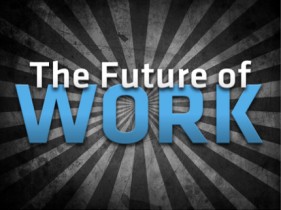









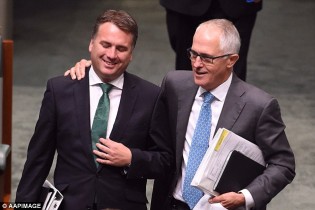
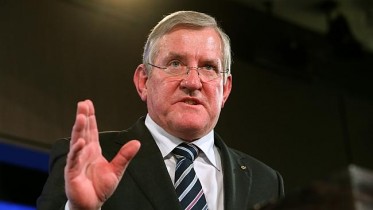
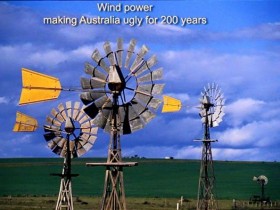
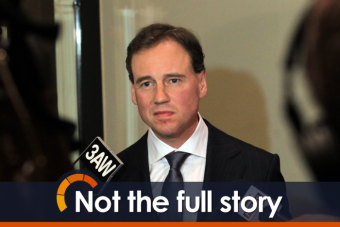
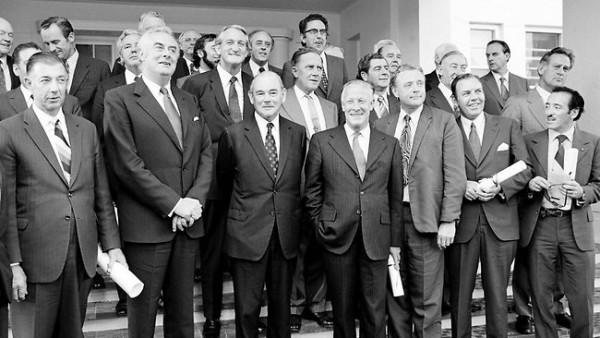



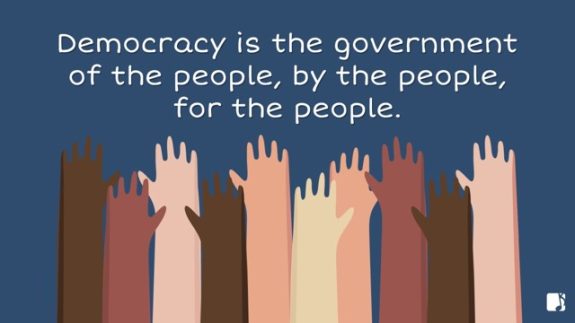
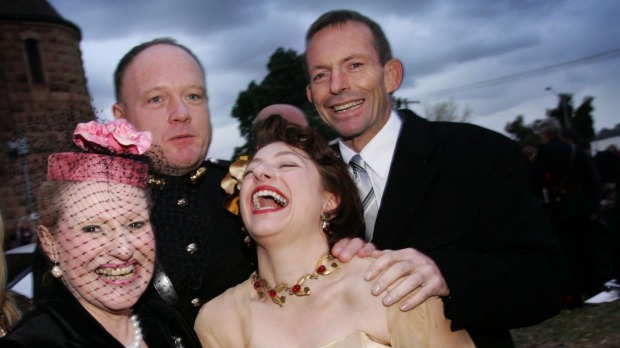
 1 It’s difficult to criticise Labor’s proposal to impose the so called Buffet Tax on the rich when the Australian Taxation Office had found that in 2011-12 75 Australians earning more than $1 million a year had paid no tax at all. In fact combined annual incomes of those millionaires was $195 million, but through elaborate accounting tricks, the super-rich 75 had been required to stump up just $82 in total.
1 It’s difficult to criticise Labor’s proposal to impose the so called Buffet Tax on the rich when the Australian Taxation Office had found that in 2011-12 75 Australians earning more than $1 million a year had paid no tax at all. In fact combined annual incomes of those millionaires was $195 million, but through elaborate accounting tricks, the super-rich 75 had been required to stump up just $82 in total.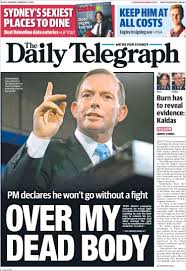 1 Last week at the Premier’s retreat the PM appealed for a calm measured debate on the GST without any scaremongering. Sounds reasonable except he continued his scare campaigns on Asylum Seekers and Climate Change.
1 Last week at the Premier’s retreat the PM appealed for a calm measured debate on the GST without any scaremongering. Sounds reasonable except he continued his scare campaigns on Asylum Seekers and Climate Change. Monday 26 July
Monday 26 July